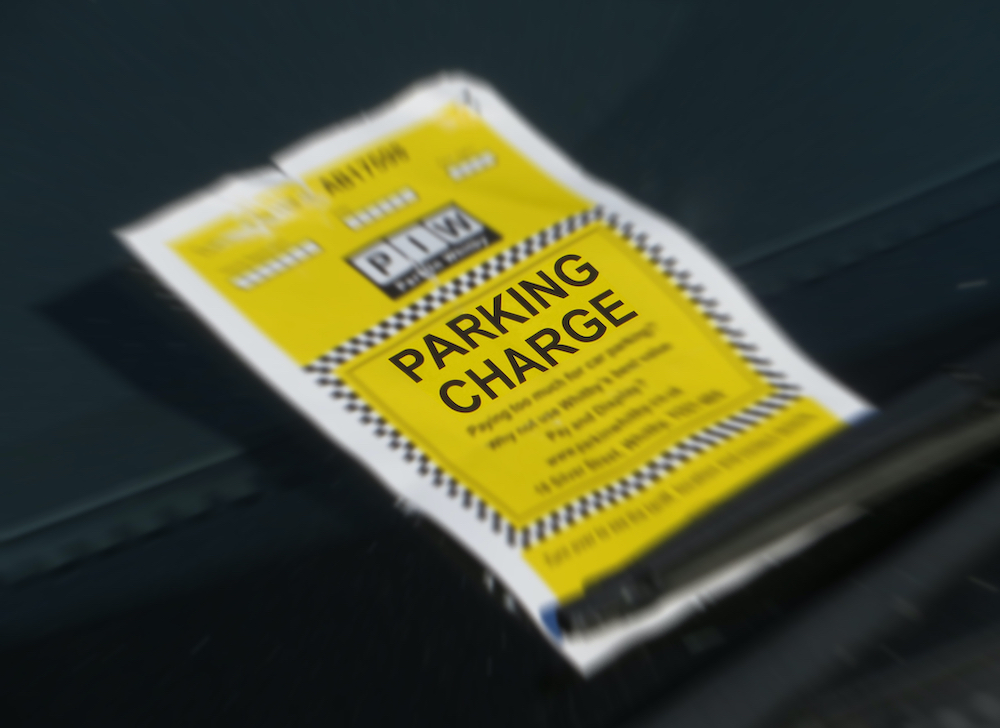It happens to most drivers at some point: You return to your parked car and find a parking ticket stuck to your windscreen.
It’s annoying. But if it’s never happened to you before, it can be worrying too. What do you have to do if you get a parking ticket? And how long do you have to do it?
The Different Types of Parking Tickets
If you get a parking ticket, you have three options:
- Ignore it (note: This is not a good idea!)
- Pay it.
- Appeal it.
We’ll explore the appeals process in more detail below. But in the vast majority of cases, paying a parking ticket is much easier and, potentially, much cheaper than appealing a parking ticket.
The process for paying a parking ticket will depend on the type of ticket it is:
- Penalty Charge Notice (PCN) – Think of this as an “official” parking ticket – the type that police and traffic wardens give out. You might get a penalty charge notice for parking on double yellow lines, for example. For more serious parking offences, you might get a fixed penalty notice (FPN) instead.
- Private Parking Ticket – Also known as a parking charge notice. This is the sort that private organisations might give out, such as car parks, restaurants, and supermarkets.
Paying a Parking Ticket – PCN or a FPN
If you get a PCN or an FPN, you have 28 days to either pay the fine, or appeal it. In most cases, you’ll only have to pay half the fine if you pay it within 14 days.
In some cases, you might receive your FPN or PCN in the post. This will happen if your parking offence was caught on camera, rather than by an officer or a warden on the ground. The good news is that, if you get an FPN or a PCN in the post, then you might get a discount on your fine if you pay within 21 days, rather than 14.
You’ll find instructions on how to pay your PCN or your FPN on the notice itself. It’s easiest to pay for your parking ticket online. On the government’s website you’ll find a useful guide to paying all kinds of parking tickets for all kinds of parking offences. Head here to get started.
Paying a Private Parking Ticket
The way you pay for a private parking ticket will vary depending on who gave you the ticket in the first place.
The organisation that gave you the ticket should make it as clear as possible. The process for paying should be written on the ticket itself. Or if you got the notice in the post, the letter you receive should outline the process for paying.
If the organisation hasn’t made it clear, then get in touch with them and let them know. They’ll be able to advise you on your next steps.
In some cases, it might be possible for you to pay a private parking ticket in person – at a kiosk in a car park, for example, or inside a shop or restaurant.
Appealing a PCN or an FPN
If you feel that you shouldn’t have received your PCN or FPN, then you can contest the ticket.
You have 28 days to challenge an PCN. If your challenge is accepted, then you won’t have to pay your fine. But if your challenge is rejected, then don’t lose hope! You still have some options.
You’ll receive a “notice to owner” notifying you of your challenge’s outcome. After you receive this notice, you’ll have 28 days to make a “representation” – or a formal challenge. You’ll then have to explain, in as much detail as you can, your reasons for challenging your parking ticket. The more evidence you can provide at this point, the stronger your case will be.
If your representation fails, you’ll get a “notice of rejection”. You’ll then have another 28 days in which to either pay your fine, or to appeal to an independent tribunal. At this point, you might also have to pay an additional penalty for late payment.
If you’re facing an FPN rather than a PCN, then you’ll have to take your case to a magistrate’s court. Look on the back of the ticket itself for details on how to do this. Eventually you’ll get a summons with a date for your court hearing.
It might be clear by now that challenging a parking ticket, whether it’s a PCN or an FPN, can be a long and arduous process. In most cases, it might be less of a headache to just pay your fine outright, and to do so as soon as possible so as to get the discount.
But if you want to contest your parking ticket, on the government’s site you’ll find a guide to the process for challenging numerous different types of parking offences. Head here to get started.
Challenging a Private Parking Ticket
Private companies don’t have a legal right to enforce parking fines. But this doesn’t mean that you can just ignore private parking tickets, because private companies do have a legal right to pursue any money that they think they’re owed.
So if you decide to simply ignore a private parking ticket, the organisation might take you to court. The court might rule in your favour, of course. And the organisation might decide that the cost of taking you to court outweighs the amount they’d make from your fine. But it’s best not to risk it. The court could also rule against you. And spending any time in court can be an immensely stressful inconvenience and could prove expensive.
If you want to challenge a private parking ticket, don’t just ignore it, as this might cause you further problems in the long-term. Instead, write to the company. Make your case and provide as much evidence as you can.
The organisation might ignore or reject your appeal. In this case, you can appeal to either:
The bad news is that these bodies only handle complaints concerning members of the British Parking Association and the International Parking Community. They won’t be able to help you if you’re appealing against a parking ticket from a supermarket, a hospital, or a restaurant. But the Citizens Advice Bureau might be able to help.
Clamping and Towing
Even worse than getting a parking ticket is returning to your car to find it clamped. And even worse than that is finding that your car’s been towed away.
If the police, a traffic warden, or the local council’s clamped or towed your car, then you’ll have to pay the fine before they remove the camp, or before they release your car from the pound. After this, you can still appeal against the charges, but you’ll be appealing to get your fine refunded rather than revoked.
Police, traffic wardens and local councils are the only people who are legally able to clamp or tow your car. In most cases, it’s illegal to clamp or tow cars on private land. So if an owner of a private car park has towed or clamped your car, don’t pay the fine. Instead, call the police. This organisation will have broken the law, and they could now be facing a fine of up to £5,000.
Can Parking Tickets Affect Car Insurance?
In most cases, you won’t get any points on your licence for disputes involving parking – even if your case makes it to court.
You might get points on your licence for certain serious parking offences. But you’ll never get points on your licence for private parking disputes. So no matter what happens with your private parking ticket – whether you decide to pay it, ignore it, or challenge it – it will not affect the price of your car or van insurance.




